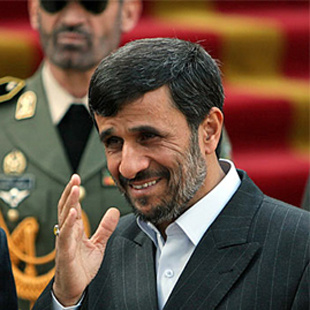Iranian Diplomacy was not Strong against Regional Issues

IRD: How do you evaluate the Gulf Cooperation Council’s statement on their recent meeting? Does such a position against Iran have a history?
MS: In this relation, it should be said that the statement was not as harsh as Arab media propaganda before the release of the statement. Propaganda in the Arab media and indirect Saudi statements that condemned Iran for its involvement in regional countries was much harsher compared to the statement itself. It was said that internal conflicts caused this issue, but it is not clear whether the claim is true.
Since Iran needs cooperation with Persian Gulf states, especially Kuwait and Oman, which always had good relations with Iran compared to other countries, Iran could have reacted against the statement mildly, as the UAE’s minister of foreign affairs tried to do in an interview after the statement. Of course, the UAE postponed the issue of the islands in previous statements (and there was no allegation of UAE ownership of the three islands in the Persian Gulf Cooperation Council’s previous statement).
The president’s tone in an interview on Monday was harsh, especially in accusing the countries of surrendering to foreign countries, which made the atmosphere darker, and it was acceptable under diplomatic norms. If we're trying to solve problems and to have relations with Egypt, Tunisia and other Arab countries after the recent revolutions, we should not deal with those Arab countries in this manner and if there is any misunderstanding, we must try to resolve it. So my overall assessment on the issue is that our diplomacy in dealing with regional issues was not active and strong, and could have been better.
IRD: Some consider this position adopted by the Gulf Cooperation Council unprecedented and claim that even during the war, despite the support of this institution for Saddam, such an extreme position was not adopted against Iran. Do you think this is true?
MS: It's not true that the Persian Gulf Cooperation Council did not adopt such a position earlier, but in my opinion, a favorable context is provided for Iran to solve problems. The issues of Kuwait should be resolved with more understanding, because Iran's relations with this country are very sensitive. The relations with Oman and Saudi Arabia are the same. Saudi Arabia is a base for Iran’s relations with regional countries, but Iran has failed to properly solve its problems with that country. Qatar repeatedly has asked Iran to solve those problems in order to better develop its relations with Iran, but Iran has failed in that regard.
Mr. Salehi, the Minister of Foreign Affairs, at the beginning of his appointment announced that Saudi Arabia wanted to improve relations. As foreign policy is devised and enforceable within in the framework of general policies, unfortunately the general policy of Mr. Ahmadinejad was not in the direction of improving relations, and that is why Mr. Salehi has not achieved his goal so far.
The remarks and interpretations proposed about relations with Egypt and Kuwait could be suitable in the context and at least a verbal promise could be made. Accusing the judiciary of Kuwait in this manner is not correct. In the case of Bahrain, many mistakes have been made: intensifying the polarity of Shiites-Sunnis, for example, was wrong. Bahraini Shiites, like other people, fight against the government of Bahrain and the demanded concessions are those of all people, not just those of the Shiites. The right to vote for all must be guaranteed, as do equal rights for all people which were also sought in Iraq.
Our state media not only criticized the Al-Khalifa regime, but also vilified it; this causes a problem based on diplomatic norms, especially for a public media.
IRD: The Gulf Cooperation Council, with the justification of the collective security system referred to in its statute, sent troops to Bahrain and it is one of the reasons that Iran has had strained relations with Arab countries. According to the statutes of the Gulf Cooperation Council, how is involvement of the Arab countries’ forces in question acceptable?
MS: There is no doubt that the Bahraini government made big mistakes and suppressed the demonstrators harshly; did not give rights to its people, did not fully establish democracy, did not respect equal rights of the nation, and treated protesters violently. But the matter is that when governments speak, they must do it diplomatically, unless they want to end relations. Currently, Iran's Ministry of Foreign Affairs does not want to break with the Bahraini government; it is even making some efforts to send an ambassador to Bahrain.
In the case of sending troops to Bahrain, Oman, which has good relations with us, adopted a position in favor of Bahrain. Qatar, with friendly relations with Iran, also supported the government of Bahrain and even Syria- considered as Iran's strategic partner- supported the government. Walid Moallem, Syria's Minister of Foreign Affairs, publicly and also in his visit to Tehran adopted positions against Iran and confirmed the Saudi measure to send troops to Bahrain. If we want to take a step, in addition to the issue of right and wrong, we must remember the diplomatic issues and the impact of our measures.
The media’s measures caused the world public opinion to believe that Iran is currently involved in Bahrain. We must avoid scandals based on the teachings of our religion. Especially in the case of Bahrain, newspapers like Kayhan repeated the claim that Bahrain was owned by Iran, and requested that the government make that claim again. With this mentality, we should act more cautiously. Based on our experiences, the people of Bahrain, relying on their force and their emphasis on being Bahraini, can achieve their lost rights.

